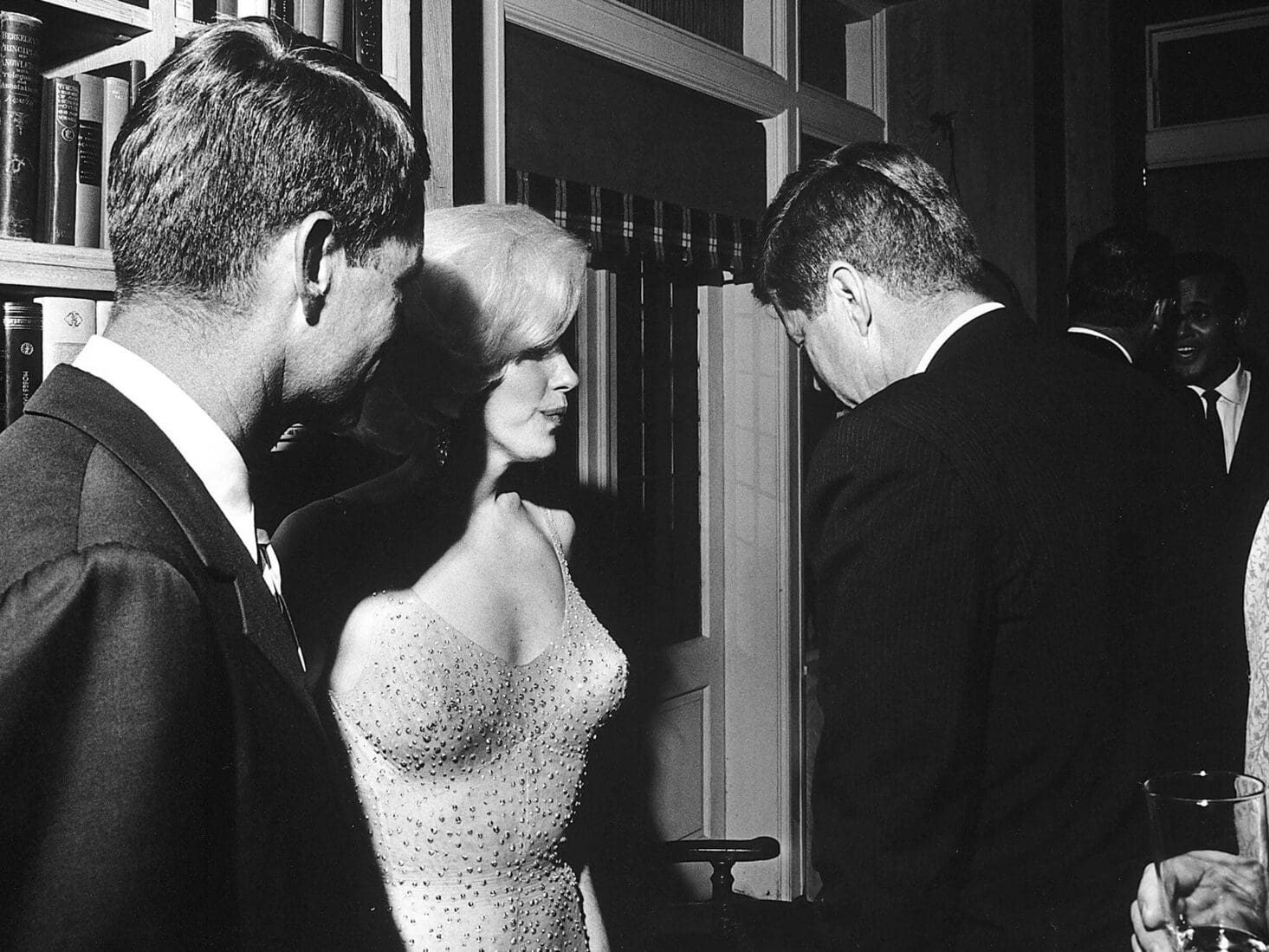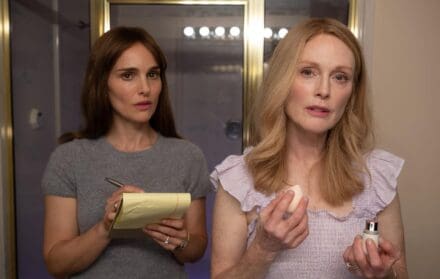
Blonde: The true story of Marilyn Monroe and the Kennedy brothers
Everyone knows about the alleged JFK affair, but as Blonde re-tells the doomed story of Marilyn Monroe, what role did the actress’ rumoured relationship with the other Kennedy brother play in her tragic final days?
It remains the sexiest, most alluring rendition of the world’s most familiar song. In Madison Square Garden, Manhattan, on the evening of 19 May 1962, Marilyn Monroe appeared at a Democrat Party fundraising event in an ermine coat. Walking across the stage she dropped the fur to reveal a skin-tight, flesh-coloured dress covered in 2,500 rhinestones. She had nothing on underneath.
Marilyn sang Happy Birthday Mr. President to John F. Kennedy with a sexual potency that couldn’t fail to be lost on the 15,000-strong audience, the words pouring out of her mouth like slow-melting chocolate. Kennedy himself was sardonic about the performance, which set the tongues that were already wagging about the duo’s possible affair into overdrive. “I can now retire from politics after having had Happy Birthday sung to me in such a sweet, wholesome way,” JFK stated with, one must assume, an eyebrow raised somewhere near the very top of his hairline.
 |  |  |
Three months later, Monroe would be dead at the age of just 36 from what official accounts have long claimed to be an accidental overdose. Yet, much as the alleged affair between the US President and the most famous woman on earth continues to intrigue, there is far more concrete information regarding the affair Monroe had with his younger brother, Bobby Kennedy, who, at that time, was serving as the Attorney General of the United States. A man whose behaviour plays a far more significant role in the last day of Marilyn’s life, and her untimely death.
Saturday 4 August 1962 was a more than unusually difficult day for Marilyn. Holed up in a hacienda in Southern California, she had planned to rendezvous with Bobby later that evening. Kennedy, married with children, was due to watch an atomic bomb test that day and, according to friends, Marilyn was convinced, despite her rumoured affair with his brother, that it was Bobby with whom she would one day marry and settle down. Bobby Kennedy, however, had either been advised by his most trusted confidants that an affair with the actor and sex symbol was a serious breach of convention, or he had, of his own accord, simply lost interest in a woman who was by this point frustrating Hollywood moguls with her on-set tardiness and her demands about only working with certain directors.
Both Marilyn and the Kennedys were long-time friends with Peter Lawford, a short-lived member of Frank Sinatra’s Rat Pack who was married to Patricia, one of the Kennedys’ many sisters. During raucous and highly indiscreet beach parties at Peter and Patricia’s Malibu beach house, Marilyn was, at first, drawn to the President-to-be before turning her attention to Bobby after his brother entered the White House. Yet the beach house, far from being a discreet hideaway, had been bugged. Bobby’s attempts to take down mafia associate and head of the Teamsters Union, Jimmy Hoffa, led to the Mob hiring private detective Fred Otash and his team to secretly install recording equipment which captured much of the riotous excess of the Lawford parties. The notion of the President’s brother, the Attorney General, cavorting with movie stars and very possibly discussing sensitive matters of state would have been of more than passing interest to the Soviet Union at a time of increased hostility; the Cuban Missile Crisis was just two months away at the time of Marilyn’s death.

Bobby, perhaps coerced or perhaps convinced in his own mind that the affair could not continue, skipped his date with Marilyn on that August Saturday night. Monroe, devastated, alone and long an abuser of barbiturates, downers and sleeping pills, began frantically calling her few trusted friends, including newspaper columnist Sidney Skolsky, to whom she had previously revealed her affair with JFK. According to Sidney, Marilyn “had calls that morning and by the time I saw her she was in a rage.” He went on to attest that Monroe “expressed considerable dissatisfaction with the fact that here she was, the most beautiful woman in the world, and she did not have a date for Saturday night.”
Alone and now snubbed not only by the President but also by his brother, Marilyn’s already highly fragile coping mechanisms seemed to go into meltdown. Timelines and versions of events vary radically with regard to who discovered her that night but by the following day the world had learned of the sudden death of a woman who, more than simply a movie star, seemed to encapsulate the youth, ambition, confidence and sexual allure of 1960s America.
What is certain is that the FBI had long been keeping a scrutinous eye on Marilyn. Previously married to the playwright Arthur Miller, a man viewed as a potential Communist during the McCarthy investigations into ‘Un-American’ activities during the 50s, Marilyn’s intimate relationship with the Kennedys, plus her own opinions against the USA’s stockpiling of nuclear weapons, conspired to worry the Bureau enough to create a “105” file on her – a number defined as alluding to anyone who had political views which might not align with those of the FBI.

The files have since been released, but in a severely redacted form, with entire pages blacked out by censors. Although there has never been any proven evidence that Bobby or John ever revealed state secrets to Marilyn, the relationship and her premature death were more than enough to titillate conspiracy theorists for decades to come. More than 60 years on from Monroe’s death, the bugged tapes are yet to be heard. It’s possible they were destroyed when Bobby was in the midst of running for President himself, an ambition snuffed out when he himself was assassinated in a hotel kitchen in 1968. But what’s certain is that Bobby’s rejection of Marilyn is a far more significant factor in her death than the fling she may have had with his older brother.
A true smoking gun will almost certainly never emerge. Yet the murkiness around who was watching Marilyn and the suddenness of her death appear to be almost custom-designed to trigger people to continue to ask questions. George Cukor, who had directed Monroe in two of her films, put it bluntly when he said the passing of the 20th century’s leading sexual icon was “a nasty business. Her worst rejection. Power and money. In the end, she was too innocent.”
Read more: The scandalous story of Elvis Presley and the illegal Dutchman









